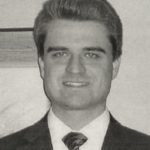Op-Ed: Don't Like Democrats Playing Ball with Big Business? Blame Bob Hope
The 20th anniversary of Bob Hope’s death on July 27 closes the “Season of Hope” that began with Hope’s 120th birthday on May 29. It will not be observed outside of this column, whose author uses Pepsodent toothpaste because it sponsored Hope’s radio show. Nevertheless, Hope’s influence on America remains.
I am not referring to his unparalleled career at the apex of vaudeville, Broadway, movies, radio and television. I am not referring to stand-up comedy, which Hope concocted by synthesizing Frank Fay’s presentation and Will Rogers’ populism. I am not referring to his inspiring philanthropy or his record-breaking collection of honors and tributes.
I am referring to contemporary American politics.
Hope was not a political comedian. Sure, he was the first comic brave enough to make sport of Sen. Joseph McCarthy. And he deserved a seat on the UN Security Council, for no one emerged from World War II a bigger winner. But even during the Vietnam War, Hope’s comedy was never partisan. He took care to give a good-natured ribbing to all politicians.
Hope’s comedy was nothing if not broad. And his contribution to today’s political environment was purely unintentional.
This century’s biggest political story is the realignment of big business from the Republican Party to the Democratic Party. Incredibly, it began with offhand advice from Hope to a young man in his employ.
On June 15, 1964, Tony Coelho turned 22 years old. It was the worst day of his life.
That day, Coelho was diagnosed with epilepsy. The son of California dairy farmers and grandson of Portuguese immigrants, Coelho (pronounced “Kwello”) experienced periodic seizures following an automobile accident. The diagnosis resulted from a medical examination Coelho underwent in preparation for entering a Jesuit seminary. At the time, epileptics were barred from the Catholic priesthood.
Rejected by the Jesuits, Coelho’s driver’s license was soon revoked and his health insurance terminated. Unemployable due to his disability, Coelho turned to alcohol and thoughts of suicide.
Inebriated day after day, Coelho’s despair ended when a Jesuit friend brought him to the attention of Hope’s wife. Coelho soon found himself living on Hope’s estate with the greatest job ever. As Hope’s factotum, Coelho critiqued Hope’s monologues, attended tapings of television specials, and walked the red carpet of movie premieres.
During a nocturnal drive around Los Angeles, Hope said to the aspiring priest, “It’s obvious you have this burn to help people. If that’s your bag, why don’t you go to work for a member of Congress?”
With a loan co-signed by Hope, Coelho relocated to Washington to work for his hometown congressman, Bernie Sisk, eventually becoming Sisk’s chief aide. After a long career as a staffer, Coelho was elected to Sisk’s congressional seat upon the latter’s retirement in 1978.
Coelho is the transitional figure in modern Democratic politics. He soon found his true vocation as chairman of the Democratic Congressional Campaign Committee, the organization tasked with getting Democrats elected to the House of Representatives.
Charged with containing the Reagan Revolution that had swept the presidency and the Senate, Coelho transformed the DCCC from a debt-ridden joke into a fundraising dynamo. He accomplished this by focusing on a constituency that his party had written off — big business.
An extreme extrovert, Coelho extracted money from corporate interests with zeal. He understood that big business is uninterested in the level playing field of the free market. Instead, it seeks rent from government in the form of subsidies and tax and regulatory loopholes.
Coelho’s pitch to businessmen was simple: Democrats had controlled the House for decades with no end in sight and if big business wanted to keep its goodies, it better pay up.
Coelho’s aggressiveness literally paid off. The DCCC reached parity with its GOP counterpart in business donations and a Republican House majority was delayed for a decade.
But staving off one political realignment kicked off another. Financially dependent on big business, the Democratic Party lost interest in the class-based concerns that once defined it. Coelho epitomized the coming Democratic preoccupation with identity politics at the expense of working-class issues by controversially joining the Congressional Hispanic Caucus.
But while the Democratic Party’s embrace of big business fundamentally changed the party, any changes to big business were superficial.
Like the Coelho-cultivated relationship between big business and the Democratic Party premised on perpetual Democratic control of the House, today, the relationship between big business and the cultural left is premised on perpetual left-wing control of the commanding heights of the culture.
Big business will always play ball with those in power. Post-Coelho, Democrats are happy to play ball with big business.
Don’t like it? Blame Bob Hope.
The views expressed in this opinion article are those of their author and are not necessarily either shared or endorsed by the owners of this website. If you are interested in contributing an Op-Ed to The Western Journal, you can learn about our submission guidelines and process here.
Truth and Accuracy
We are committed to truth and accuracy in all of our journalism. Read our editorial standards.
Advertise with The Western Journal and reach millions of highly engaged readers, while supporting our work. Advertise Today.












